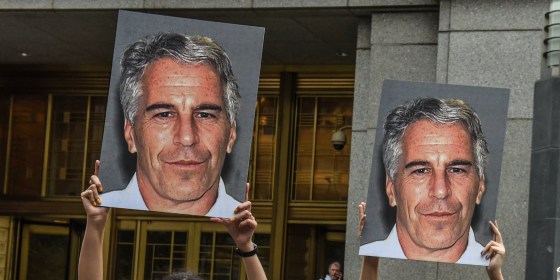The devil is a notoriously misleading advocate. Lawyers and pundits who revel in advancing arguments that they might like to act on but wouldn’t be caught dead making in a courtroom or legal brief seem to take perverse pleasure in making those demonstrably flawed arguments as “devil’s advocates.”
Among the best recent examples is the way some lawyers and others who promote their views of sexual matters in public venues have been making the outlandish claim — as devil’s advocates, they say — that the age of consent to sex for youngsters, and young girls in particular, ought to be lowered if we’re to be consistent with the state laws and judicial rulings enabling younger women and girls to have safe and legal abortions without the consent of parents, guardians or other adults.
Some lawyers and others who promote their views of sexual matters in public venues have been making the outlandish claim that the age of consent to sex for youngsters ought to be lowered.
It’s a superficially plausible claim because both the decision to say “yes” to having sex and the decision to say “yes” to ending a pregnancy relate to bodily functions and have obvious sexual components. And both decisions can have momentous consequences for those who make them and for others as well.
But there the resemblance ends. When someone’s “consent” to sex is discounted because of her youth, the result is that those who use her for sex face legal consequences, including possible criminal prosecution. When a teenage girl who opts for an abortion is prevented from getting one because her parents — perhaps including a father who subjected her to an incestuous attack — refuse their permission, the result is that she is forced to remain pregnant and give birth to a child she is unready to bear.
Indeed, the humane legal developments over the past few decades that have made it possible for teenage girls to obtain abortions without parental consent have reflected the very opposite philosophy from the one that advocates of lowering the age of consent to sex for teens necessarily presuppose. The basic premise underlying the removal of parental consent (and in some instances even parental notification) requirements for abortion is that it’s fundamentally wrong to exploit and compromise the integrity of someone else’s body, including that of a young girl, as a means to one’s own ends — whether those ends involve sexual pleasure, financial profit, misguided paternalism, or the pursuit of an egotistical fantasy of the kind Jeffrey Epstein is reported to have nurtured as he “hoped to seed the human race with his DNA by impregnating women at his vast New Mexico ranch.”
But of course, that’s exactly what exposing easily exploited and sexually vulnerable kids to the depredations of predatory adults would do. And efforts to divorce the constitutional arguments about the matter from the underlying moral considerations are both philosophically obtuse and legally naïve.
Have a response to a THINK piece that would make a good letter to the editor? Click here to find out how.
Urged in the name of the sexual liberation and empowerment of supposedly mature minors, reductions in the legal age of consent would in reality protect dirty old men from prosecution as child molesters, sex traffickers, statutory rapists, incestuous fathers and would-be genetic engineers. Shielding those predators from the criminal consequences of their sexploitation would create unfortunate incentives for powerful men to subjugate women to their whims or perversions as sex slaves, breeders, or other means to their personal ends. If this brings to mind “The Handmaid’s Tale,” it should.
At the same time, raising the age below which girls would need to obtain consent from a parent or guardian or other third party would make teenaged women and their bodies involuntary vessels for gestating babies. Those concerned for the rights of both the mother and the unborn should beware such arguments. Restricting women’s freedoms is a knife that cuts both ways. As the Supreme Court recognized in its 1992 decision in Planned Parenthood v. Casey, judicial rulings forcing pregnant teens to have abortions pursuant to their parents’ wishes have been defended by judges hostile to Roe v. Wade because they are convinced that a woman’s or girl’s interest in reproductive autonomy is not, contrary to Supreme Court precedent, a fundamental liberty entitled to judicial protection from an all-powerful state.
In sum, the basic flaw in the “logic” of those who compare the age of consent to sex with the age of consent to abortion is that children deserve protection from those who would exploit their immaturity for self-gratification, while forcing a girl to gestate a fetus when she wants her pregnancy to end or forcing her to abort her fetus against her will both entail variants of involuntary servitude and bodily invasion.
Only a devil would treat those radically different situations as parallel — whether to prove his cleverness or to gain legal leverage when suspected of child rape.


